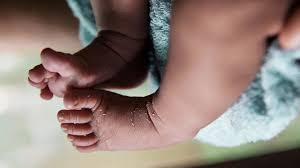
Natural Skincare Routine For Men: Skincare For Men With Beards
April 15, 2024
Best Natural Skincare Routine For Combination Skin
April 30, 2024The structure of babies’ skin makes it fragile and prone to dryness, making the topical treatments you apply to your baby very important. It’s best to use cleansing and moisturising products that contain lipids and humectants to maintain the skin’s protective barrier. Lipids include cholesterol and free fatty acids, while humectants are substances that preserve or sustain moisture. Skincare formulas containing these ingredients can help seal in moisture and keep out external aggressors—which can help alleviate dryness in babies.
Causes Of Dry Skin In Babies
After you’ve given birth to your baby, his/her skin will transition from being surrounded by water (amniotic fluid) in the womb, to the dry atmosphere of our world. Their skin will also have to adjust to wearing clothes and being washed. All of these could be tasking on your baby’s skin, leading to peeling, dry patches of skin. Some additional common causes of dry skin in babies and newborns are:
- Age – it’s common for newborns to have dry skin. If it doesn’t improve after some time, talk to your Doctor.
- Allergens – like dust or cigarette smoke can irritate and dry out babies’ skin.
- Genetics – some dry skin conditions, such as eczema, can often run in families.
- Low humidity – especially during the hot season in Nigeria when you’re more likely to dry out the air in your home by using air conditioners to combat the heat.
- Overbathing – can dry your baby’s skin out as it washes away the natural oils on the skin’s surface, causing dryness.
- Soaps – chemicals in synthetic soaps and detergents can irritate your baby’s skin and dry it out.
- The seasons – sensitivity to cold winds or extreme heat can cause dryness in the skin.
If you’re not sure what could be the cause of dry skin on your baby, try keeping track of whenever your baby’s skin seems dry using a log. This may help you spot potential patterns to work out what might be behind the issue. If your baby has skin that is inflamed, crusty, broken, weeping, or blistered, it’s best to consult a medical expert as soon as possible.

Symptoms Of Dry Skin In Babies
There are numerous signs and symptoms to look out for when considering if your baby has dry skin but here are some of the common signs of dry skin in babies:
- Cracked skin,
- Itching,
- Redness,
- Peeling or flaking skin,
- Rough, grey, and ashy patches of skin.
Flaky skin in newborns is normal and it often happens when a baby is overdue. Usually, this clears up within the first few weeks of birth, and the skin below will be soft and healthy. Some babies will experience continued dry skin and even develop conditions like eczema, also known as atopic dermatitis. Eczema typically shows up as patches of dry skin on a baby’s face and creases in the knees and elbows. It’s usually red, but on darker skin, the patches can look more purple, brown, or grey.
Skincare Routine For Babies
Before you start scrubbing your baby’s skin to remove the dry, flaky skin, remember that baby skin is thinner and more delicate than ours. So, specially formulated infant products should be used on it. Here are some of our top tips for caring for dry skin in babies at home:

Bathing:
Babies don’t need a full bath every day because they don’t tend to do very much. Instead, you can try wiping them down with a clean cloth and warm water to keep their face and bottom clean without giving them a full bath.
When you do bathe them, avoid using products that dry their skin. Instead, choose products that are specially formulated for babies and infants that are more delicate on their skin like the Kanda Baby soap and Baby Oil.
Use the right laundry products:
Ideally, you should wash baby clothes with gentle detergents and rinse them thoroughly afterwards to help minimise issues with baby dry skin. Gentle fabric softeners may also help keep their clothes nice and soft to help prevent itching.
Limit the amount of product you use:
You don’t necessarily need to put anything on your baby’s dry skin to help treat it – it may heal itself in time. If it doesn’t, or you have concerns, you can talk to your Doctor. Limiting the number of products you use on your baby’s skin can reduce the risk of it drying out. You should also avoid taking your baby out in the sun without sun protection or a proper covering.
A gentle moisturising lotion can be used on dry baby skin after bathing to keep their skin soft if needed. You can also use a type of moisturising cream known as an emollient or baby face cream to help relieve dry skin on your baby’s face.
Additional Tips For Caring For Dry Skin In Babies
- Avoid fragranced bath products and use gentle washes that are soap-free, fragrance-free and formulated with skin-barrier protecting, hydrating ingredients.
- Gently pat dry with a towel and moisturise immediately after a bath to help seal in moisture. Choose a lotion with skin-barrier replenishing lipids.
- Think warm, not hot when bathing or wiping down your baby as hot water can strip much-needed moisture from your baby’s skin.
- Bathe daily or every other day, and apply cream/lotion/moisturiser immediately afterwards to lock in moisture and again once or twice throughout the day.
- Keep your baby hydrated by giving him/her plenty of fluids from breast milk and/or formula. But don’t offer water until after 6 months or getting the green light from the paediatrician.
There’s a good chance that the strategies above will keep your baby’s skin supple and smooth. But if dry patches start to spread, crack or seem painfully itchy, consult the paediatrician.

